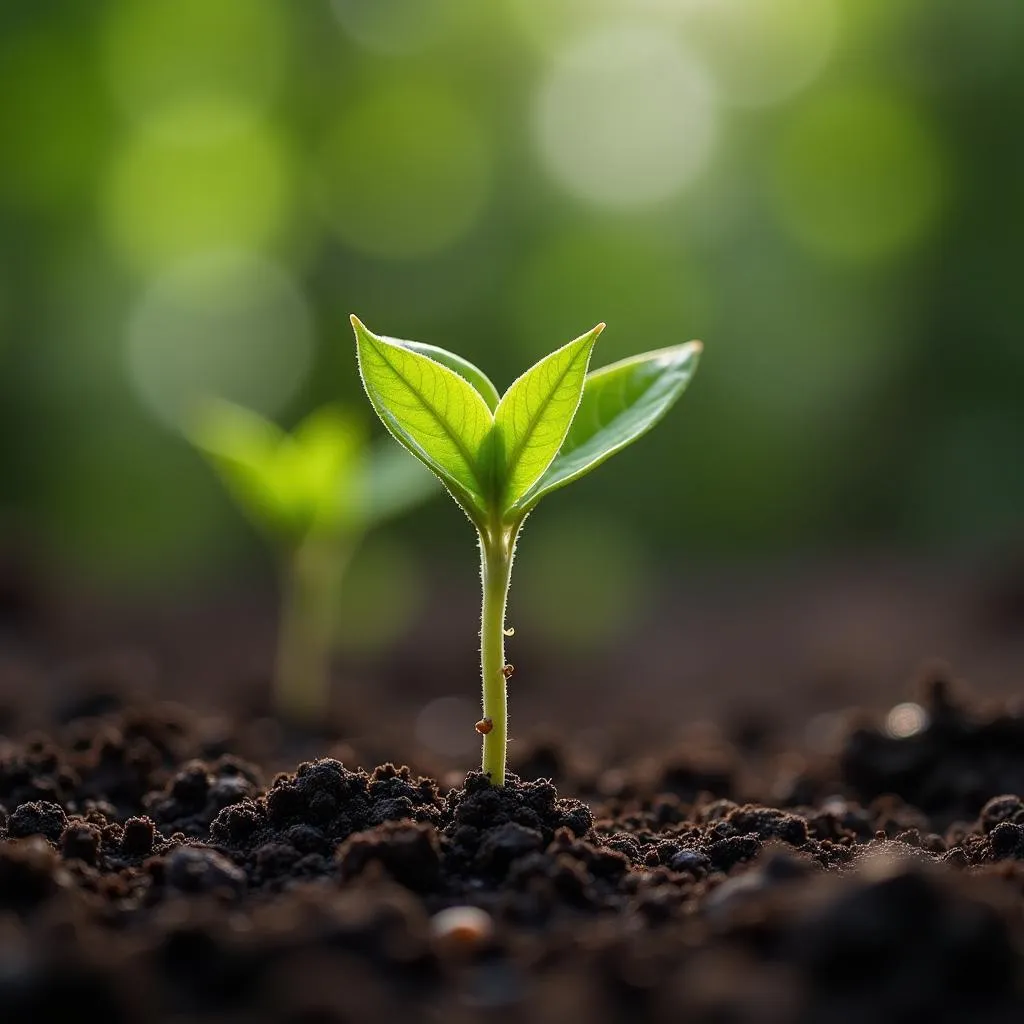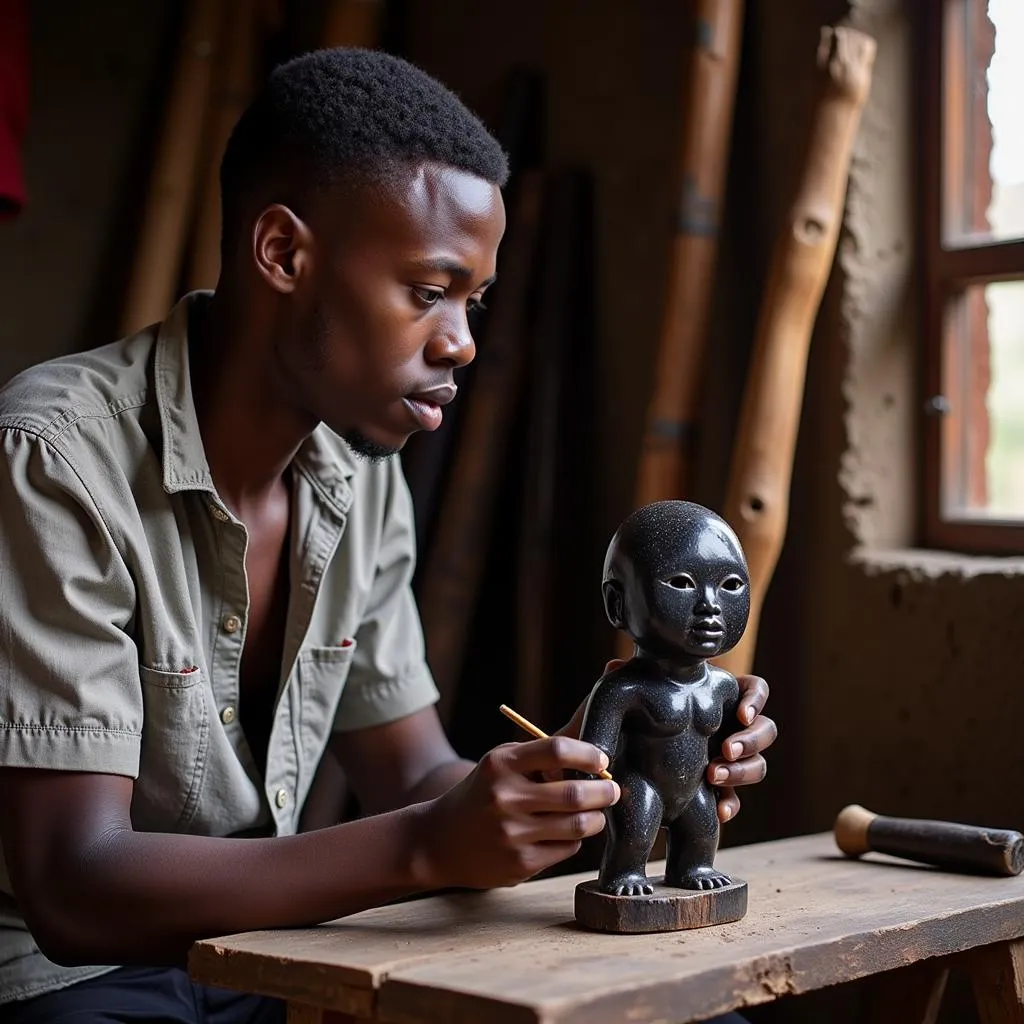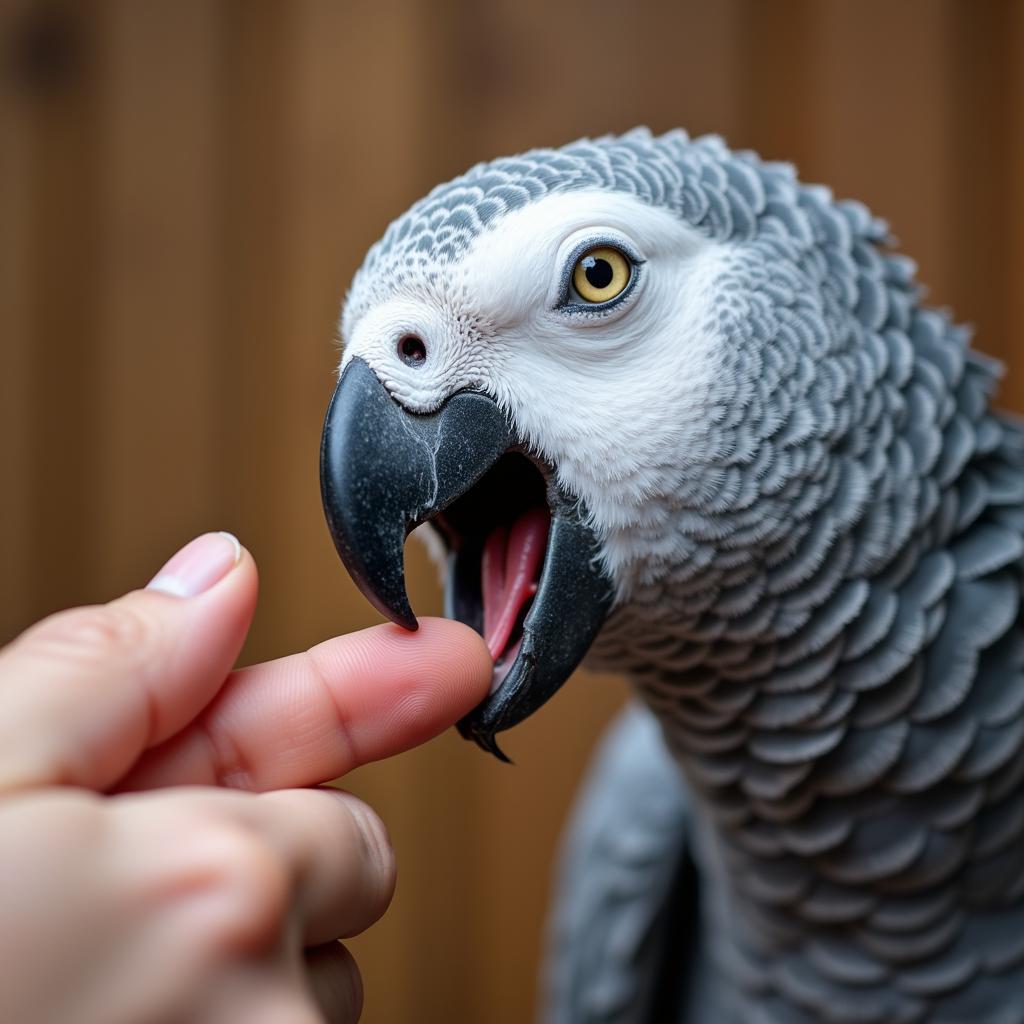Unlocking the Secrets of African Ebony Tree Seeds
African Ebony Tree Seeds, prized for their potential to grow into majestic trees yielding the coveted ebony wood, hold a certain allure for both nature enthusiasts and artisans. These seeds represent not just the start of a tree’s life, but also the continuation of a legacy deeply entwined with African culture, art, and history.
Delving into the World of African Ebony Trees
While “African ebony” can refer to several Diospyros species native to Africa, they all share a reputation for their dense, dark heartwood. This wood, often referred to simply as “ebony,” has been treasured for centuries for its beauty, durability, and suitability for crafting fine furniture, musical instruments, and decorative objects.
 African ebony tree growing in its natural habitat
African ebony tree growing in its natural habitat
Understanding the journey from seed to mature tree offers valuable insights into the significance of this species.
From Seed to Sapling: Germinating African Ebony Tree Seeds
Germinating African ebony tree seeds requires patience and understanding of their specific needs. These seeds possess a hard outer shell that necessitates careful handling.
Here’s a step-by-step guide to improve your chances of success:
- Seed Selection: Choose seeds from reputable sources to ensure quality and viability. Fresh seeds generally have a higher germination rate.
- Scarification: Gently nick or scarify the hard seed coat using sandpaper or a file. This process allows moisture to penetrate and encourages germination.
- Soaking: Soak the scarified seeds in warm water for 24-48 hours to further soften the outer shell.
- Planting: Sow the seeds in a well-draining potting mix, about 1-2 inches deep.
- Environment: Provide warmth, humidity, and indirect sunlight. A consistent temperature of around 75-80°F (24-27°C) is ideal.
- Patience: Germination can take several weeks or even months. Be patient and maintain consistent moisture levels.
 Newly sprouted African ebony tree seedlings in a nursery
Newly sprouted African ebony tree seedlings in a nursery
Nurturing African Ebony Trees: A Long-Term Commitment
Growing African ebony trees is a rewarding but long-term commitment. These slow-growing trees take decades, even centuries, to reach maturity and develop their prized heartwood.
Here’s what you need to keep in mind:
- Soil: Well-draining soil is crucial.
- Sunlight: While young trees tolerate some shade, mature trees thrive in full sun.
- Watering: Water regularly, especially during dry periods, but avoid overwatering.
- Pruning: Prune lightly to shape the tree and remove any dead or diseased branches.
The Value of African Ebony: Beyond the Wood
The significance of African ebony extends beyond its material value. In many African cultures, these trees hold cultural and spiritual importance:
- Traditional Medicine: Various parts of the tree, including leaves and bark, are used in traditional medicine.
- Ceremonial Uses: Ebony wood is often incorporated into ceremonial objects, reflecting its esteemed status.
- Symbolism: The tree often symbolizes strength, resilience, and longevity in African folklore.
 Skilled artisan carving intricate designs into African ebony wood
Skilled artisan carving intricate designs into African ebony wood
“The African ebony tree, much like the continent itself, embodies a story of resilience and profound beauty. Its journey from seed to majestic tree serves as a reminder of the interconnectedness of nature, culture, and time.” – Dr. Abena Owusu, Ethnobotanist
Conclusion
African ebony tree seeds encapsulate the potential to cultivate not just majestic trees but also a connection to Africa’s rich heritage. By understanding the tree’s life cycle, its cultural significance, and the dedication required to nurture its growth, we gain a deeper appreciation for the legacy embodied within each seed.
FAQ
1. How long does it take for an African ebony tree to mature?
African ebony trees are notoriously slow-growing, taking several decades to a century to reach full maturity.
2. Are African ebony trees endangered?
Due to overexploitation and habitat loss, some species of African ebony are considered threatened or endangered.
3. Can I grow an African ebony tree indoors?
While possible to grow them in containers initially, African ebony trees are best suited for outdoor environments due to their size and light requirements.
4. Where can I purchase authentic African ebony tree seeds?
Ensure you purchase seeds from reputable suppliers committed to ethical and sustainable sourcing practices.
5. What are some alternative woods to African ebony?
Black walnut, bog oak, and African Blackwood offer similar dark hues and density as alternatives to African ebony.
Need Help?
For any questions or assistance regarding African ebony tree seeds or other aspects of African flora, contact us!
Phone: +255768904061
Email: [email protected]
Address: Mbarali DC Mawindi, Kangaga, Tanzania.
Our dedicated team is available 24/7 to provide support.

